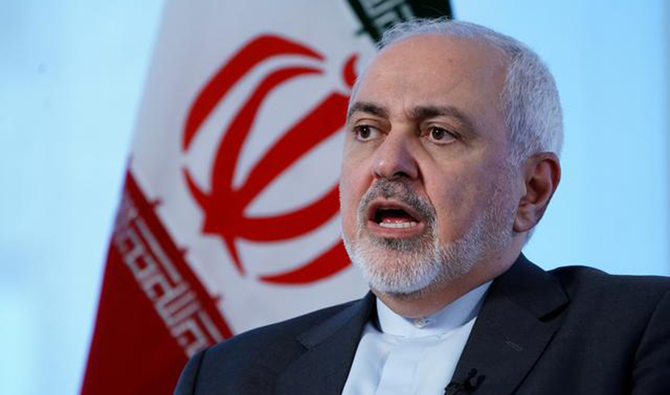Why Iran sanctions are still a powerful tool

https://arab.news/wxe4u
Since Joe Biden became US president, the Iranian regime has been gradually softening its position in order to resurrect the Joint Comprehensive Plan of Action (JCPOA) nuclear deal. This is considered a humiliation to the Islamic Republic, which is known to boast about its power, resilience and opposition to US demands.
Ahead of the Biden administration assuming office in January, the Iranian leaders took a firm stance toward the nuclear deal, believing that the new president was going to be similar to Barack Obama in terms of having a strong desire to resume the nuclear deal with Tehran. After all, Biden was vice president in the Obama administration that negotiated the JCPOA and, when he was running for president, he made it clear that he wanted to resort to diplomacy in order to bring Tehran back to the nuclear pact.
Believing that the nuclear deal would be revived in a matter of days, the Iranian leaders became emboldened and initially demanded that the US must return to the nuclear pact and lift all sanctions without any conditions. In addition, the regime began threatening Washington in an attempt to project its power and further rush the Biden administration into returning to the 2015 nuclear agreement. For example, the Iranian authorities started enriching uranium to 20 percent purity at the underground Fordow nuclear facility, meaning it is now just a short technical step away from weapons-grade level.
The Islamic Revolutionary Guard Corps followed suit by targeting international shipping, such as seizing a South Korean-flagged tanker. The Iranian parliament also did its work by passing a law that required the government to expel all International Atomic Energy Agency (IAEA) inspectors from the country if US sanctions were not lifted by Feb. 21.
The empowered regime had previously also started demanding financial compensation. Iran’s judiciary demanded that the US pay $130 billion due to the damage done by its sanctions. Similarly, Iranian Foreign Minister Javad Zarif last year told a forum organized by New York’s Council on Foreign Relations: “Compensate us for our losses… A sign of good faith is not to try to renegotiate what has already been negotiated.”
The Iranian leaders believed the White House would be in a hurry to revive the nuclear deal with President Hassan Rouhani’s so-called moderate administration before June’s Iranian presidential election, which could well result in a hard-line political figure being elected.
Less than two months after the Biden administration took office, Tehran has started softening its position.
Dr. Majid Rafizadeh
However, things began changing when the Biden administration did not show the strong desire that the Iranian leaders were expecting concerning a possible return to the nuclear agreement. Statements coming out of the White House also poured cold water on the Iranian regime’s plan. Rob Malley, the State Department’s Iran envoy, pointed out that the ball is in Iran’s court. He added: “We don’t intend to base the pace of our discussions on the Iranian elections — the pace will be determined by how far we can get, consistent with defending US national security interests. In other words, we won’t rush or slow things because of the Iranian elections.”
Biden also stated that his administration would not lift sanctions on Iran in order to give an incentive to the Islamic Republic to come to the negotiating table. The White House instead insisted that the Iranian government must comply with its commitments under the nuclear deal in order for the sanctions to be lifted.
Now, less than two months after the Biden administration took office, Tehran has started softening its position in order to bring back the 2015 nuclear deal. Constant demands for financial compensation have disappeared from the Iranian leaders’ announcements. In addition, in spite of the law not allowing IAEA inspectors to monitor Iran’s nuclear sites after Feb. 21, the regime reached an agreement with the head of the IAEA to grant the inspectors access for the next three months. The Rouhani administration would not have reached such an agreement without the approval of Supreme Leader Ali Khamenei.
Zarif has also retreated from his firm stance and has proposed a “coordinated return” to the nuclear deal. He pointed out that EU foreign policy chief Josep Borrell could help “synchronize” or “coordinate” attempts by Iran and the US to return to the JCPOA.
The Iranian regime’s retreat from its firm demands regarding the nuclear deal show the importance of the sanctions leverage that the US holds over Tehran.
• Dr. Majid Rafizadeh is a Harvard-educated Iranian-American political scientist. Twitter: @Dr_Rafizadeh









































